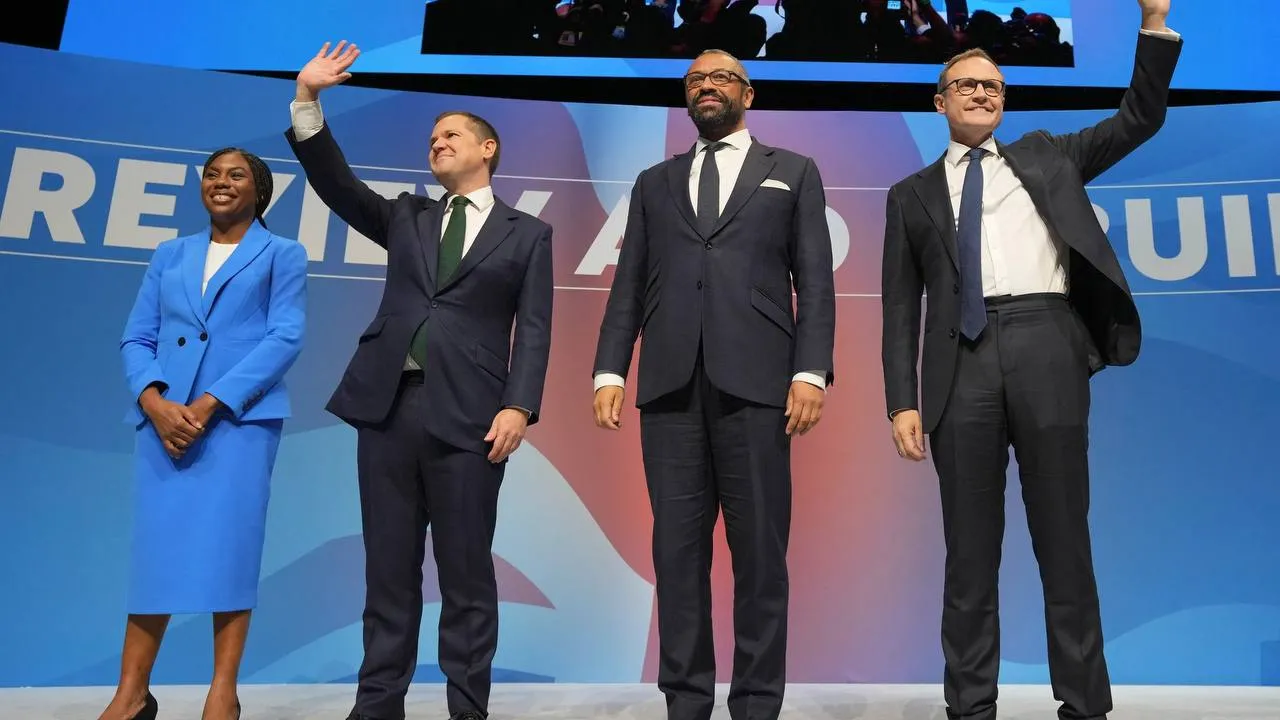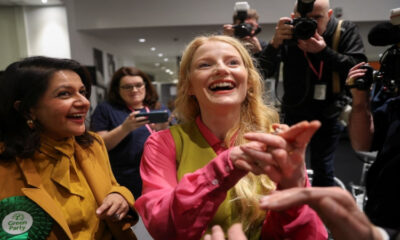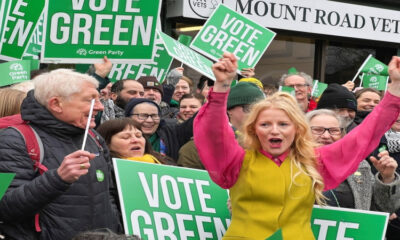Politics
UK General Election Countdown: Labour Widens Lead Amid Policy Shifts

As the United Kingdom moves closer to the anticipated 2025 general election, the political landscape is undergoing rapid change. The latest opinion polls indicate that the Labour Party has extended its lead over the governing Conservatives, reflecting growing voter appetite for change after years of economic challenges, leadership controversies, and public service strains. The campaign period is intensifying, with party leaders unveiling policy platforms focused on cost-of-living relief, healthcare reform, and economic stability. Public sentiment, while cautiously optimistic, suggests that voters are demanding tangible results rather than rhetoric, placing unprecedented pressure on both major parties as they head into the final months before polling day.
Poll Trends and the Shifting Political Climate
Recent polling conducted by major British news organizations shows Labour maintaining a consistent double-digit lead over the Conservatives. A composite of national surveys from leading agencies puts Labour at around 44 percent, compared to the Conservatives at approximately 28 percent, with the Liberal Democrats and Reform UK trailing in the single digits. The figures reflect deep public dissatisfaction with economic management, public service delivery, and political integrity following several turbulent years in Westminster.
Analysts attribute Labour’s growing advantage to leader Keir Starmer’s disciplined messaging and pragmatic approach to policy. His strategy has focused on projecting competence and moderation, appealing to both disillusioned Conservative voters and younger demographics seeking stability. The party’s emphasis on “renewal through responsibility” resonates with middle-income families who have faced rising mortgage rates and stagnant wages.
The Conservative Party, by contrast, faces an uphill battle to rebuild credibility after multiple leadership changes and internal divisions. Prime Ministerial speeches in recent weeks have sought to highlight economic resilience, but many voters remain skeptical. While inflation has begun to ease and growth forecasts are slightly improving, polling suggests that public trust in the government’s handling of the economy remains weak.
Campaign Promises and Economic Messaging
With the economy dominating voter priorities, both parties have made economic policy the centerpiece of their campaigns. Labour’s platform focuses on fiscal discipline coupled with strategic investment in green energy, public transport, and healthcare infrastructure. The party has pledged not to raise income tax for most earners while promising to close loopholes and reform windfall taxes on energy companies to fund social programs.
The Conservatives, meanwhile, are positioning themselves as defenders of economic prudence, warning against what they describe as excessive state intervention under Labour. Their campaign emphasizes tax stability, continued support for small businesses, and cautious increases in public spending. However, internal disagreements over spending cuts and welfare reform continue to hinder message clarity.
In addition to economic issues, both parties are courting voters on housing, education, and national security. Labour’s proposal to accelerate affordable housing construction and expand apprenticeship schemes has gained traction among younger voters. The Conservatives have focused on law enforcement and defense, aiming to reassure traditional voters concerned about security and immigration control. Political observers suggest that the election could hinge on marginal constituencies in the Midlands and northern England, where economic recovery remains uneven.
Public Sentiment and Voter Priorities
Public mood across the UK is cautiously engaged but markedly fatigued. Surveys by leading pollsters reveal that more than 60 percent of voters believe the country needs a change of direction. The cost of living remains the top concern, followed by the state of the National Health Service and housing affordability. Many respondents express frustration at the perceived lack of long-term planning from successive governments.
Despite Labour’s commanding lead, a significant portion of the electorate remains undecided, with voters wary of political promises that may not survive fiscal scrutiny. Political scientists note that while Labour is well-positioned, maintaining voter trust through the campaign’s final stretch will be critical. For the Conservatives, the challenge lies in convincing voters that the worst of the economic turbulence has passed and that continuity offers stability rather than stagnation.
Conclusion
As the countdown to the general election continues, the United Kingdom stands at a pivotal moment in its political trajectory. The widening Labour lead suggests a public yearning for renewal and accountability after a decade of volatility. However, the coming months will test the durability of that support as parties face closer examination of their economic plans and leadership credibility.
Voter sentiment points toward a pragmatic, issues-driven contest rather than a purely ideological battle. Economic competence, trust, and tangible improvement in daily life will likely decide the outcome. Whether Labour can sustain momentum or the Conservatives can mount a late recovery remains to be seen, but one thing is clear: the election will define Britain’s direction for the rest of the decade and shape how the country rebuilds its political and economic foundations.






















